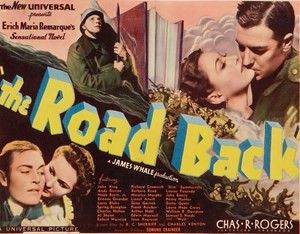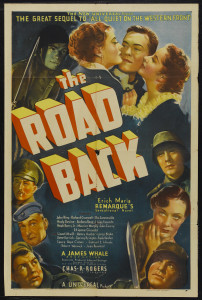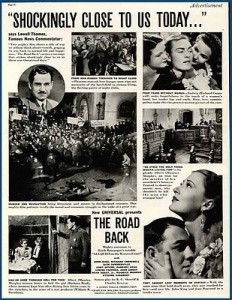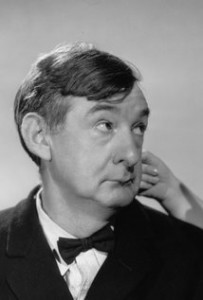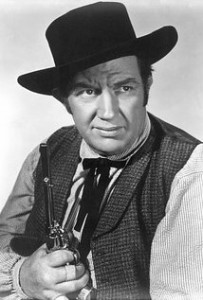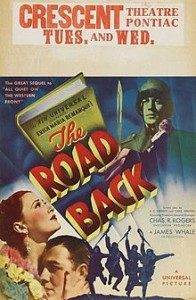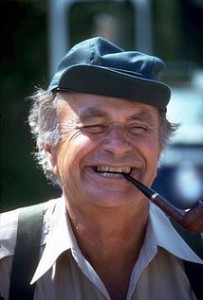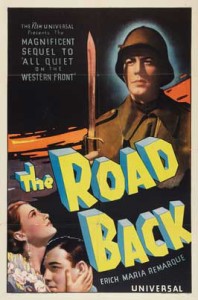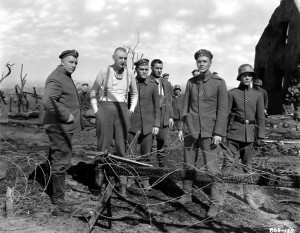The Road Back *** (1937, John ‘Dusty’ King, Richard Cromwell, Slim Summerville, Andy Devine, Noah Beery Jr) – Classic Movie Review 3427
This ambitious and interesting but disappointing, Universal studio-butchered 1937 follow-up to All Quiet on the Western Front (1930) was planned by director James Whale and writer R C Sherriff as the definitive anti-war movie to cap their hit Journey’s End (1930).
In the screenplay based on Erich Maria Remarque’s novel, the sequel story to his classic All Quiet on the Western Front, the handful of surviving All Quiet’s World War One German soldiers now return battle fatigued from the front to find shattered home life also difficult to handle.
There are no Rambo-like outbursts here, but an over-studied, dramatically weak and sometimes frankly tedious film is redeemed with many great moments of note, particularly the battle scenes, food riots and sequence featuring the ghosts of the departed.
Unfortunately, Slim Summerville (Tjaden) and Andy Devine (Willy) are wrong-headed casting, absurdly tipping it into slapstick. But Whale brings a quality touch, passion and imagination to the direction, and Noah Beery Jr (Wessling) and John ‘Dusty’ King (Ernst) give the right kind of doomed performances.
Also in the cast are Barbara Read, Louise Fazenda, Lionel Atwill, John Emery, Spring Byington, Laura Hope Crewes, Etienne Girardot, Larry J Blake, Henry Hunter and Maurice Murphy.
The nervous studio, scandalously succumbing to Nazi Government pressure via their consul in LA, took the film away from Whale and re-edited it with 20 scenes cut, and horrible new comic-relief material written by Charles Kenyon and directed by Ted Sloman.
Even though it was a hit at the box-office, its budget had rocketed from $750,000 to $1million, making it still a flop, and Whale was blamed for his ‘intransigence’ (or commitment to his original vision) and taking it four weeks over schedule, severely damaging a successful career. In 1941 he gave it all up to paint.
© Derek Winnert 2016 Classic Movie Review 3427
Link to Derek Winnert’s home page for more reviews: http://derekwinnert.com/

